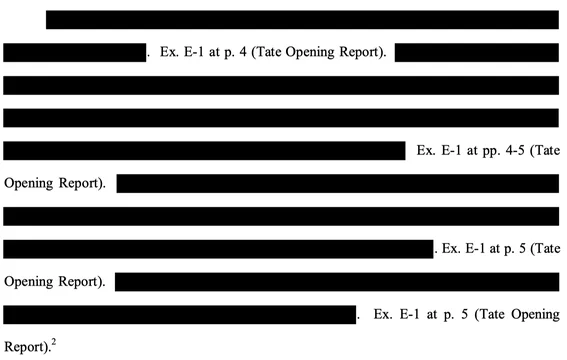We've talked a lot lately about efforts by some of the D. Del. judges to push back against over-redaction of sealed filings. In particular, Judge Andrews has recently made clear that parties must not redact non-confidential information in exhibits—e.g., the parties must make line-by-line redactions instead of just redacting exhibits in their entirety. This increases public access but, obviously, is less convenient for parties and counsel.
Last week, visiting Judge Goldberg addressed whether a third party seeking to seal information was required to make similar line-by-line redactions:
The settlement agreements also contain several non-financial terms, such as the names and addresses of the corporate entities subject to the agreement, definitions, notifications, and general provisions governing confidentiality, assignment, choice of law, etc. I highly doubt that disclosure of these types of boiler plate provisions would cause a clearly defined and serious injury. Nevertheless, I will not require [the third-party movants] to engage in the pain-staking process of providing proposed redactions that delineate between confidential negotiated terms and boilerplate, because that burden would be placed on third parties who are not seeking relief from the Court and the documents themselves played no role in deciding the issues in this case.
This is consistent with how the Court has tried third-party confidential information in the past, but it still may be useful in light of the increasing pressure to redact carefully. There are also a few other interesting points in Judge Goldberg's opinion:
- He permitted one moving party to redact another party's information, where that information could be used to deduce information about the moving party:
Normally, Cipla would not have standing to move to seal information that does not belong to it. But in these circumstances, allowing Cipla to redact only its product quantity would not provide sufficient protection, because anyone could easily deduce the redacted information by subtracting the other manufacturers’ product quantity from the total product quantity, which leaves only Cipla’s product quantity.
- He granted almost all of the motions to seal. He sealed various information including things like pricing, cost, sales, and profit data, product quantities, and licensing/manufacture/distribution terms.
- Judge Goldberg declined to seal that fact that a company had an investor, although he redacted the investor's name. He likewise declined to seal certain documents after he had asked the moving party for more information about the documents, and they did not respond.
- While he permitted redactions-in-full for some information, he still praised a party who took care not to over-redact:
I appreciate the precision upon which Slate Run proposed its redactions. For example, Slate Run did not propose to redact the business address for Red Oak Sourcing, which is publicly available.
If you enjoyed this post, consider subscribing to receive free e-mail updates about new posts.





